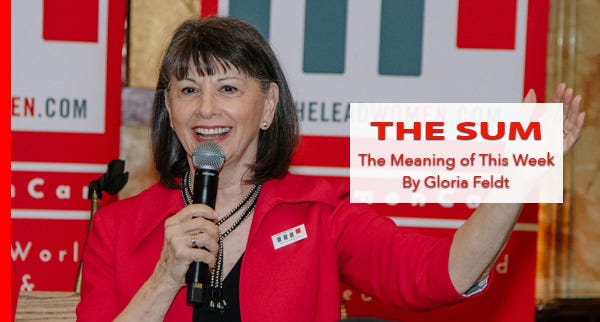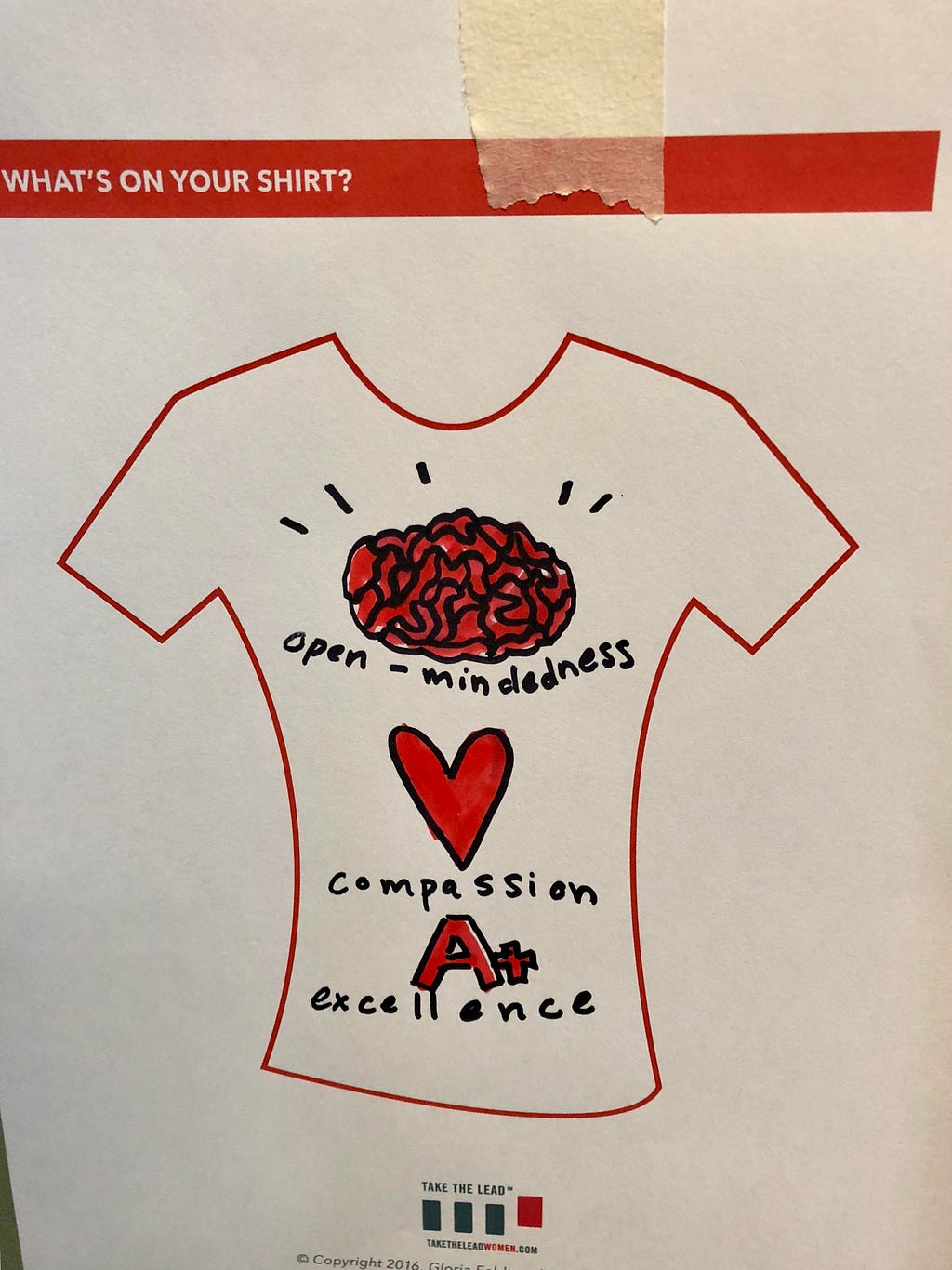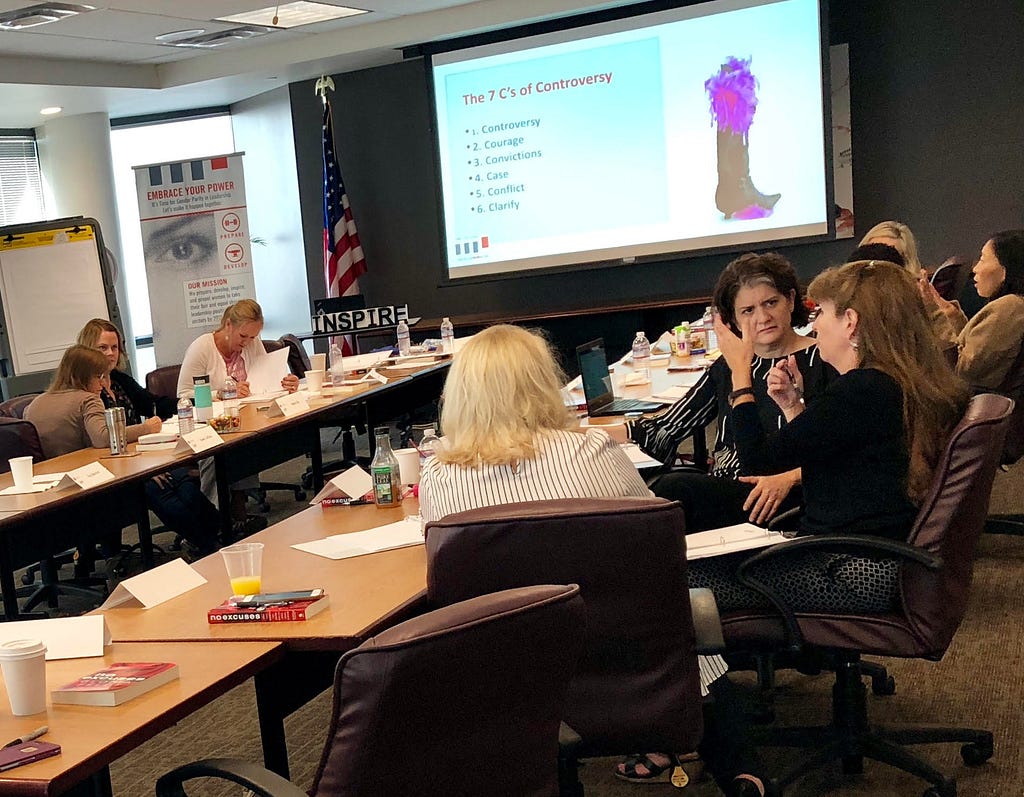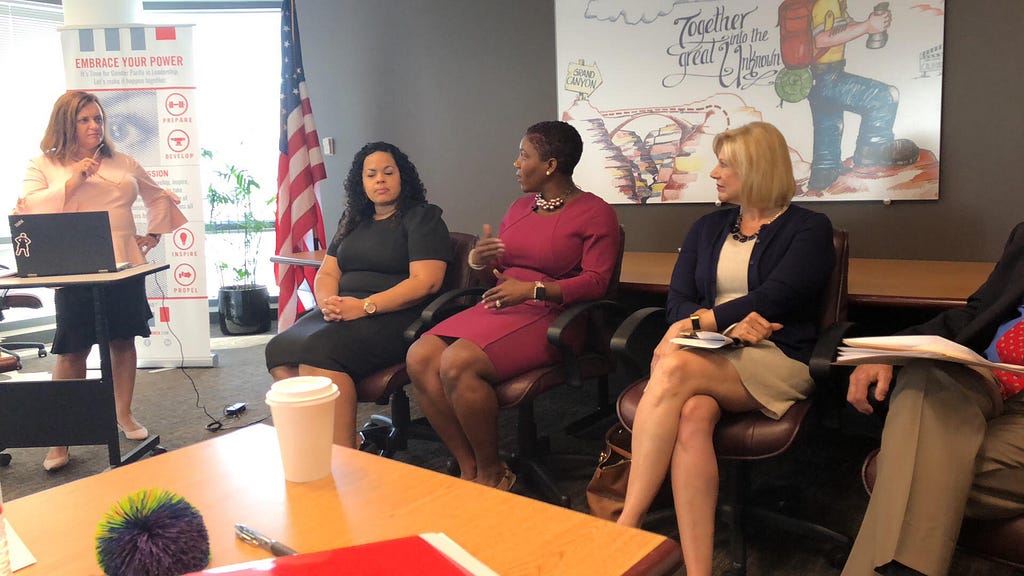Don't Be So Darn Nice: Why Talking About the Hard Stuff Is Even More Important Than You Thought

Issue 54 — June 15, 2018
Riffing on Dante, my friend Jill and I used to speculate on what our personal levels of hell would be. Pervasive niceness was her deepest level of hellaciousness. She described it as a place where tough or controversial issues were never discussed and she would have to be blandly agreeable at all times. It would be terminally boring, she said; to her, that would be a fate worse than death.
As it turns out, when too much niceness takes the form of avoiding difficult conversations, it’s not just boring. It is detrimental to relationships and productivity in the workplace.
Embracing those conversations as a positive tool whose energy powers us forward to better solutions can make the difference between the organization that innovates successfully and one that stagnates in a culture of enforced amiability.

“Wear the Shirt” of your convictions to have authentic conversations
I’m not advocating for people to be deliberately unkind to one another. I am saying that it’s not kindness to withhold an honest opinion, or to shy away from sharing facts that could lead to better outcomes in order to avoid conflict.
Language is power.
Styles of language — the way we use it and our choices of what we talk about — are rooted in power.
Nowhere is this more evident than communication between men and women from the bedroom to the boardroom.
20 years ago, Deborah Tannen’s work on linguistic gender differences in her book You Just Don’t Understand and John Gray’s Men are from Mars, Women are from Venus got popular culture buzzing that men and women speak different languages and that causes conflict.
Is that true, and if so, what part of it is implicit bias-driven cultural learning that limits us? And what part is resistance to having the hard conversations across any divides that exist, whether of gender, culture, or life experience?
How have today’s #metoo and TimesUp movements challenged us to explore those divides and to tackle questions we’ve resisted about roles, relationships, race, privilege, power, and — gasp — sex?
And on the other side of the equation, how empowering have those conversations been for those who have experienced harassment or abuse? How have the astringent rays of sunshine purified and healed a long-festering sore? Isn’t it a huge relief to put ugly secrets out in the open and have real, authentic conversations about them?
An NBC survey in March found 51% believe that reports about sexual assault have helped address the gender gap. That’s significant. And the same dynamics apply to solving any complex problem in a way that creates sustainable change.
The Business Value of Bringing Everyone into the Conversation
Scilla Elworthy calls conflict “transformation”: a positive process in which everyone grows.

50 Women in Healthcare Leadership cohort discussing how embracing controversy leads to better discussions.
Writing in Fast Company, Knowlarity CTOAjay Shrivastava suggests that the management tactic of avoiding hitting the controversy head-on by papering over differences of opinions and seeking compromise instead of the best solutions does a disservice to the company’s strategic alignment. It ultimately slows down progress, though it may seem to take more time to work through the differences at the outset.
In a diverse workplace, it can be tempting to avoid confronting differences rather than address gendered communication styles that may deter women in particular from actively engaging in conversations where their voices are not heard. Heaven knows, she might cry or something!
Women of color experience a double burden of being disregarded and undervalued, as Dr. Katherine Giscombe, Vice President and Women of Color Practitioner at Catalyst, shared from her groundbreaking study, “Women of Color in Corporate Management: Opportunities and Challenges” on my Virtual Happy Hour last week.
A report from Murray Edwards College in Cambridge, England on gender differences and behaviors at work concluded: “Women continue to report that they commonly experience behaviors and assumptions from male peers and bosses in the workplace that frustrate them and impede promotion by merit. These behaviors include being interrupted and talked over in meetings and being sidelined from many informal conversations where decisions are often really made.”

Lisa Mead facilitates expert panel of healthcare leaders sharing their tips and stories with our #50WomenCan cohort in #healthcare #leadership. L-r Mead, Gordon & Rees attorney Kami Hoskins (also a member of Take The Lead AZ Leadership Council), Banner Health Director, Diversity and Inclusion Jackie Hunter (also in the Healthcare cohort) Healthcare executive recruiter with Bileddo Associates Laurie Johnson, and Executive Coach, FrankCummins.
Take The Lead’s editorial director Michele Weldon concludes that engaging in difficult conversations is necessary to shift a workplace culture to one where everyone can contribute their best.
Fierce Conversations is a training company that teaches organizations how to have effective conversations, including the tough ones. They’ve recently done a survey in which they found that while people are talking with their friends and families about movements such as #BlackLivesMatter and #metoo, they are far less likely to touch on those issues in the workplace. On the positive side, the survey found that younger workers and women were more likely to discuss these topics and that employees, in general, feel more empowered to do so
I had a chance to interview Stacey Engle, Executive Vice President at Fierce, who told me that a common barrier to addressing inequality in the workplace is being “too nice.”
She gave the example of a Fierce client, CHRISTUS Health, where executives felt their organization had developed a culture of being too “nice.” As a result, their associates were mistaking the company value of compassion with avoiding difficult conversations and constructive feedback.
When CHRISTUS implemented four specific skills: delegation, team conversations, confrontation, and coaching, employees were able to overcome fear and address issues directly instead of avoiding difficult conversations. They were then able to transition away from simply being “nice” to feeling equipped to have meaningful, effective conversations.
In our aforementioned Virtual Happy Hour, my guest Dr. Michael Kimmel, an author, Professor of Sociology and Gender Studies at Stony Brook, and leading expert on men and masculinities, wrapped it up succinctly when he said men need to listen more and women need to speak up more in order to have those productive conversations.
Now wouldn’t that be nice?

Desert Birds of Paradise blooming
